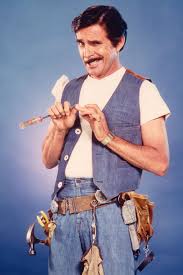 December 2014
December 2014
All structures require ongoing maintenance to avoid problems and condominiums are no exception.
While most condominiums have a superintendent and/or management office that handles most of the building maintenance, condo owners have a responsibility to ensure proper unit maintenance.
This maintenance includes but is not limited to;
- Preventing water leaks. Water leaks, when originating from within a unit, are the responsibility of the unit resident or owner. Pipes should be checked for leaks to prevent costly damage to your and neighbouring units. If your unit is the source of a leak that causes damage to other units, it is likely that you will be responsible for costs of repair. As a
general rule, if your condominium is nearing 20 years old and has the original plumbing in a bathroom, kitchen or other area, it is advisable to have it checked for potential problems. When on vacation, be sure to turn off water to the unit at its source.
Reporting water leaks. When a water leak or water penetration is found management should be informed. Water penetration may originate from the boundaries of a condominium unit or from internal areas such as leaking pipes. Water penetration, regardless of the location, can damage other condominium units. Failure to properly report and address water penetration can result in further, unnecessary, damage.
- Preventing fires. Dryer vent lint traps should be checked frequently. Cleaning the lint trap once every three loads is a good rule of thumb. Lint build up is a fire hazard. It can also result in damage to or early replacement of your dryer. Ducts clogged with lint can inhibit air circulation – heating and/or cooling – to your unit. Breathing dirty air can carry bacteria, viruses, mold and mildew.
- Preventing grease fires. Kitchen and bathroom ducts should periodically be checked. Kitchen exhaust can result in grease production in the duct and be a fire hazard. It can also inhibit the proper circulation of air in your unit.
- Maintaining air quality in the unit. Air conditioning and heating units (chillers) should be periodically checked to ensure there are no leaks or mold. Filters should be changed at least once a year.
- General in-unit maintenance. Window caulking should be checked annually. Cracks and old caulking do not provide proper insulation and can be an eyesore. In high-rise buildings, caulking is more likely to crack faster than in houses due to the building height. As winds blow, a high-rise building has some movement that can result in cracks to caulking and sometimes to the outside walls, particularly near corners.
Find Vendors in these Related Categories
- Cleaning & Janitorial Services
- Cleaning Services - Ducts
- Cleaning Services - Windows
- Contractors - Electrical
- Contractors - General
- Contractors - Mechanical
- Door & Lock Services
- Energy Services - Water
- Fire Protection
- Maintenance Services - General
- Odour Control
- Painting
- Parking Management/Cleaning Services
- Paving, Concrete and Epoxy Coatings
- Pest Control
- Plumbing Services
- Restoration Services
- Security Services and Technologies
- Snow Removal Services
- Superintendent Services
- Waste Services
- Water Proofing & Systems
- Window Replacement/Repair



